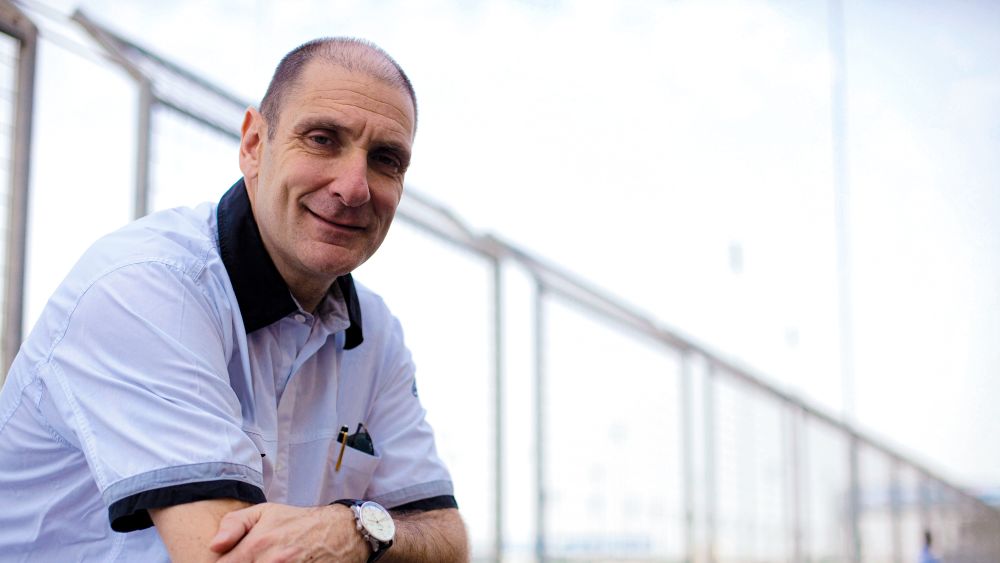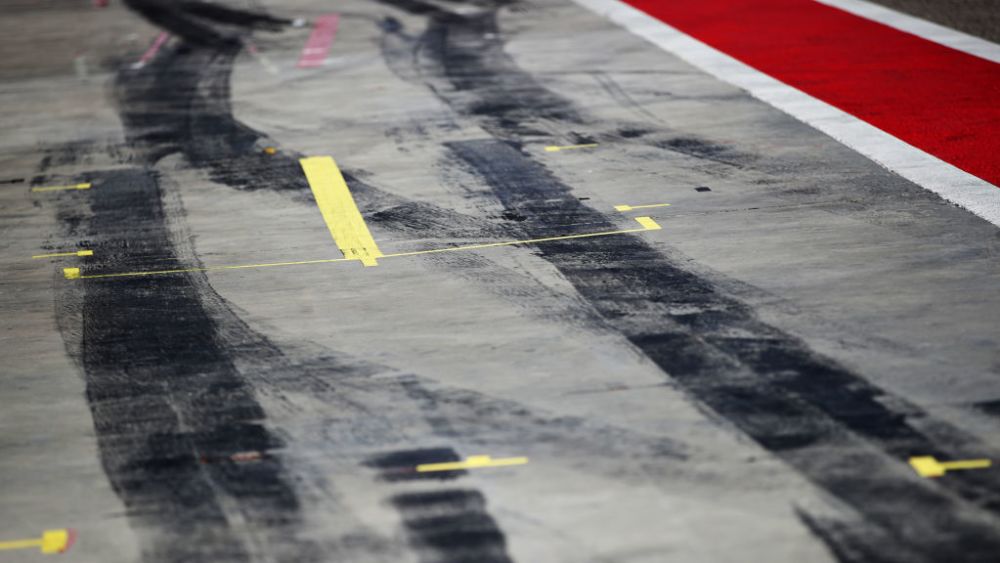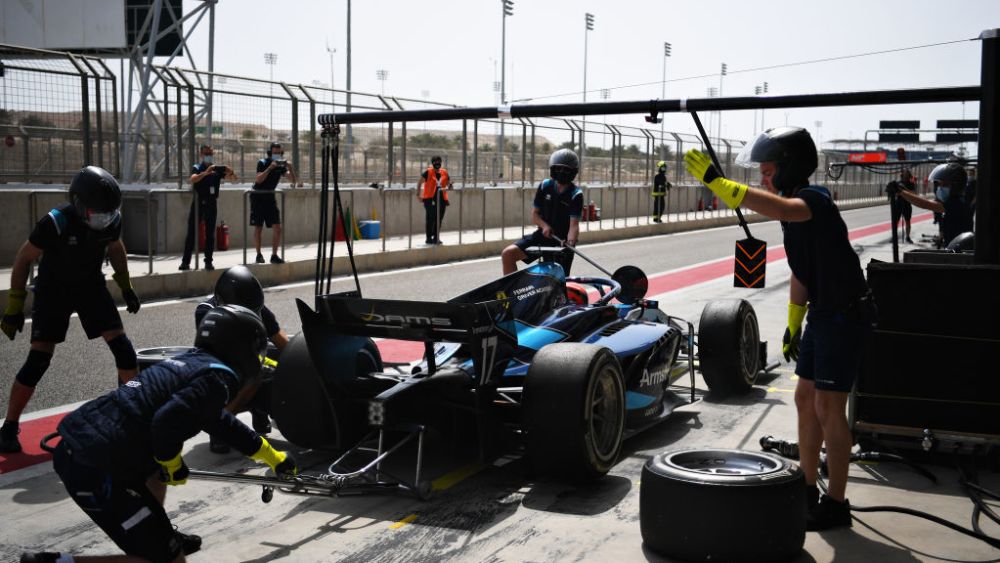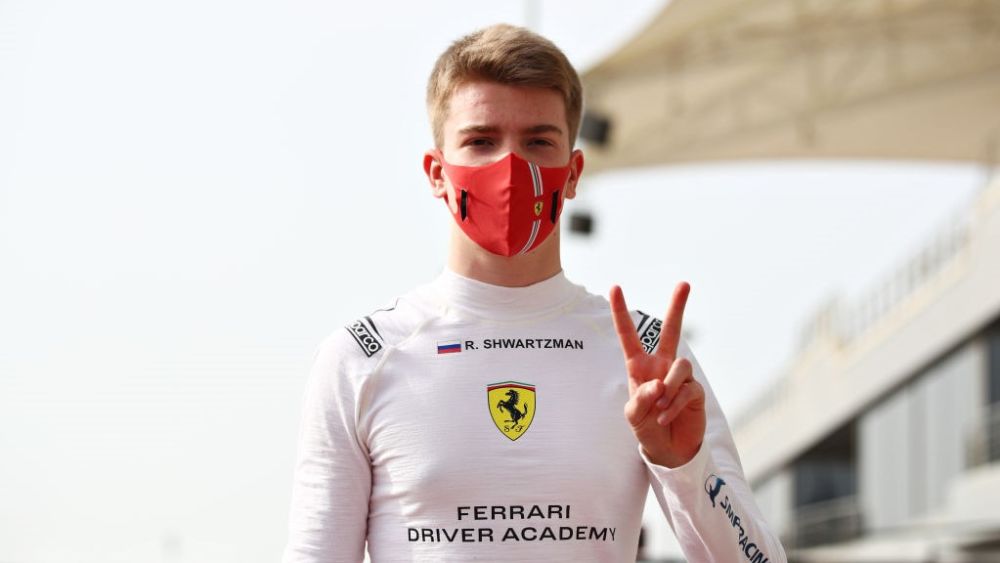Interview
Bruno Michel Q&A: F2 CEO on a new era and the latest F1 graduates

Formula 2, along with the rest of the world, have faced unprecedented challenges in the past 12 months, from finding a way to work during the Covid-19 pandemic, to re-thinking the race weekend format of the Road to F1.
With less than two weeks to go until the start of the 2021 campaign, CEO Bruno Michel is on the brink of leading F2 into a new era. Ahead of the season opener in Sakhir, he looks back on 2020 and the latest crop of F1 graduates, discusses the new format and calendar, and gives his thoughts on what the future may hold for the championship.
Q: Bruno, the 2020 campaign was a season like no other, with unprecedented challenges. How proud are you that we were able to go racing?
Bruno Michel: I am extremely proud because the odds were against us. We were in a period of lockdown in March, April and May 2020, and everyone was wondering whether it would be possible to have a season at all. It was as simple as that. Thankfully, the FIA and Formula One Management were able to put a protocol in place that allowed our season to start. Everybody - drivers, teams, suppliers, promoters, the FIA - played the game and were incredibly disciplined in the way that they followed this protocol.
Motorsport was not only a great way to bring everyone together, but it was the first international sporting event that took place after lockdown
In the end, it worked out and it worked out very, very well. It was not the easiest of conditions to work in. It was quite a bizarre season - a paddock without any guests, sponsors or journalists, only operational people… It was very unusual, but it worked, and it worked for the whole season. I must say that it was a fantastic achievement. I think it really was an amazing season, a very special one.
Motorsport was not only a great way to bring everyone together, but it was the first international sporting event that took place after lockdown, starting at the beginning of July. That’s an incredible achievement because no other sports had done international events at that time. Motorsport managed to, and that opened the door for other international events. I think that we had a very important role in sport in 2020 and as I have already said a few times, we were able to achieve that because motorsport in general had a very high level of discipline. I am speaking about F2 and F3, but obviously that includes Formula 1 as well.
Q: What would you say was the most challenging aspect of last season?
BM: Travelling was not easy for sure, but I would say that the most difficult aspect was living inside of our bubbles for the entire year. The bubbles made the personal relationships that we have always had with the teams, the partners, and the suppliers, quite impossible. We couldn't have big meetings with everyone, and we couldn’t speak with the team principals as we normally would do, and that completely changed the way that we operate on a Grand Prix weekend.
In the end, we found a way. I wouldn’t say that it was better or worse, but it was certainly completely different. For me, this was the biggest challenge. In normal circumstances, there would be a lot of meetings and informal discussions in the paddock which we simply couldn't have because we had to keep to our bubbles.
MORE: FIRST LOOK: The 2021 grid hit the track in Sakhir for pre-season testing

Q: F2 produced three more Formula 1 graduates in 2020, taking the tally up to eight in four years. How do you rate that as an achievement?
BM: This is a fantastic achievement. We are not going to have that every year, I tell you. We had three graduates two years ago and we had three in 2020 as well. Of course, the number always depends on how many Formula 1 seats are available. There are only 20 seats in F1, and it simply cannot happen every year, so when it does, we need to just enjoy it.
We had a lot of strong drivers last year, but the three that got to Formula 1 will all be drivers to follow. It is a real achievement in this period of time, and I think that it shows that we are doing our job. It proves that we are producing drivers who are ready for F1. The Formula 1 teams do not hesitate for one second to incorporate an F2 driver, a rookie, who is coming directly from F2, because it has been proven in the last few years that it works.
Formula 1 teams do not hesitate for one second to incorporate an F2 driver because it has been proven in the last few years that it works
Q: What are your thoughts on the three of them as individuals and how do you rate their chances of success?
BM: I think all of three of them have a good chance to do well. Starting with Mick (Schumacher), I must say that I was absolutely amazed by the second half of his season in 2020. It took him a little while before he could really show what he was capable of in the F2 car, but once he started performing, he was absolutely amazing and a very worthy winner. I am very happy to see him in F1 this year.
Yuki (Tsunoda) was also completely amazing and he was in a rookie season. I am sure that he is going to be a star of the future in Formula 1. He is absolutely incredible and what he showed in F2 was very, very impressive. I am sure that he will do a great job at Alpha Tauri this year.
Nikita (Mazepin) progressed a lot during his second year with us. I told him a couple of times last year that he was a different driver to the one that we saw in 2019. He was consistent and he was doing well. I believe that he will be able to do well immediately in F1. I am very confident that the three of them will adapt quickly.
I must also give a mention to Callum Ilott who had a special season. He ended up finishing second but had a fight with Mick until the very last race. He was absolutely brilliant in some races and in some quali. He missed a little bit of consistency and a couple of errors cost him dearly at the end of the season, but I am really happy to see him becoming a reserve driver for Ferrari and I really hope that at some point he can make it into a Formula 1 car in a race.
READ MORE: Five takeaways from 2021 pre-season testing in Sakhir

Q: We are less than two weeks away from the start of a new era for Formula 2, with a new format and a new calendar. How do you see this impacting the way that teams and drivers work?
BM: It is going to be different, but I am quite happy because we have had the same format for quite a while now and it is always good to have a change. It is not that the old format didn't work, but for obvious reasons, especially economic ones, we had to make sure that we were making the right decisions to diminish the costs for the teams. Going to fewer events was an important part of that, but if we were going to fewer events, then we had to do more races at each event.
I know for sure that no matter what the format is, the best drivers will always win
Having three races per event is going to be different and I am anticipating interesting fights and very interesting weekends. It is going to be a bit of a headache for teams and engineers, that’s for sure. They will need to try and figure out the right strategies and that is something that will be good because it’s never good to always use the same systems. The changes will give them something new to think about.
I know for sure that no matter what the format is, the best drivers will always win. It is going to make things interesting and it will make things different, but it will not change the final result.
Q: And how do you see the new calendar affecting things?
BM: There will only be eight rounds for F2, so they’ll be more spread out throughout the season. There will more or less be one event per month and most of the teams are doing F2 and F3, so this is quite good for them. The calendar is quite well balanced with three rounds in Europe and five flyaways and I think that it’s going to work very well.
The teams will have time after each race to dissect everything and work again to improve and get the best out of the cars in the following round. They will not have to work with the back-to-back-to-back races that we have had in the past, which I know drove them completely crazy. This will help to improve both reliability and safety.

Q: The Feature Race has now moved to the Sunday. Do you see this giving us more exposure?
BM: Absolutely, most definitely. I am extremely happy that the Feature Races are going to take place on Sundays ahead of Formula 1 because that is where the Feature Race should be. This is something that we have had in mind for a long time. I always thought that it was a bit of a pity that the Feature Race was on a Saturday and not a Sunday, but because of the format that we had in the past it was impossible to do it that way.
For me, the Feature Race, with mandatory pit stops is the most interesting race of the weekend. That is why qualifying decides the grid of the Feature Race and it is why the most points are available. The race is longer, tyre management is more important, and strategy plays a big part as well, and this all makes the race incredibly interesting. Having that on a Sunday before the Formula 1 race will give the category more exposure and I am really happy about that.
I am extremely happy that the Feature Races are going to take place on Sundays ahead of Formula 1 because that is where the Feature Race should be
Q: What feedback have you had from the teams since the decision was made?
BM: Firstly, it is important to say that all of the changes that have been made were done while talking with the teams. We speak with them a lot. We knew that we had to cut costs quite heavily and we were working with the teams to this aim. They provided us with their figures so that we could understand exactly where we could really make a difference.
Once we decided to add an additional race to each event, we worked on the format and spoke with the team principals to make sure that we had not missed anything. You always need to be careful about that. They were all very positive and that is the good thing about F2. Some teams were saying that it could make things more difficult because it will make each weekend heavier, but they were also quite excited with the new format. I have only had positive feedback from them.
READ MORE: Why Shwartzman’s desire is stronger than ever ahead of a 2021 title challenge

Q: Covid-19 is continuing to present new challenges to the way that we work. How you see it affecting the upcoming campaign?
BM: We know that this season we will have to operate, more or less, in the same way that we operated last year - at least to start with. We know that we are capable of applying it properly and with a lot of discipline. It’s not going to be easy and we’ll have the same problems as last year, but I am very confident that we can work in this way for as long as we need to. The most difficult thing at the moment is travelling because a lot of flights are being cancelled and changed, which doesn't make things easy, but once we get to the track we know how to operate.
We are in constant conversation with everyone at Formula One Management and at the FIA. We talk about the calendar and I am not worried about events being cancelled at the moment. Things can change, we all know that, but I am quite confident.
We know that this season we will have to operate, more or less, in the same way that we operated last year - at least to start with. We know that we are capable of applying it properly and with a lot of discipline.
Q: A new season brings new title challengers. Who do you see fighting at the front in 2021?
BM: It is always difficult to make guesses at the beginning of the season. We have a lot of strong drivers and, as usual, the interesting bit will be the fight between the rookies and the more experienced drivers. People like Robert Shwartzman, Guanyu Zhou, Felipe Drugovich, the Red Bull drivers, Dan Ticktum, Christian Lundgaard and Marcus Armstrong, I am sure that these guys will all be able to do well and win races this year - that is quite clear. It will be interesting to see what rookies like Oscar Piastri, Théo Pourchaire and Liam Lawson can do against the more experienced drivers.
At the end of the day, I don't want to predict who will or won't win, but what I do know is that the Championship is going to be very, very close, just like it was last year. That is what makes the worthiest champions and I am really looking forward to the first race. The general level of the grid is going to be high and I am sure that the winner will be a worthy champion; and I hope that he will be able to make it to F1 the following year.
READ MORE: Armstrong’s ‘all or nothing’ attitude has readied him for a career-defining campaign

Q: The grid continues to carry strong links to Formula 1 teams. What does this tell you about the success of the championship?
BM: It is fantastic, and the links are only growing. Ferrari, Alpine, Williams, Red Bull, Sauber - a lot of F1 teams have F2 drivers in their academy programmes. I am really happy that this is becoming more common. It is great that when F1 teams have to prepare a driver, they go through our pyramid, firstly through F3 and then to F2. The Championships are taking place at the same locations, on the same weekends as F1, so it is easy to follow their future drivers. I am really happy with how this is developing, and I hope that it continues like this in the future.
Q: Do you have a final message ahead of the season?
BM: First of all, I would like to tell the fans that I am sorry that they cannot come and enjoy the races on site for now. I hope that we will soon see them again at the track. Until then, we will provide them with a great show, and I hope that they enjoy the new format. Previously, we had two outstanding races per weekend, hopefully now we can have three. I am quite confident about that. Keep on watching F2 because you will see great racing and you will see fantastic future drivers.